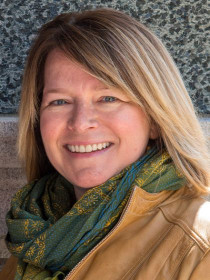
Amy Blackstone
Connect with Amy
About Amy
Blackstone’s expertise lies in the areas of families, gender in the workplace, activism and volunteering, and qualitative research methods. A primary focus of her work is the study of workplace harassment. She has served as a consultant on workplace sexual harassment cases, and her research on this topic has been cited in a variety of venues including Maine Public Radio, Marie Claire magazine, MSNBC, and Fox News. In her latest research, a study of voluntarily childless adults, she seeks to make sense of the experiences of families without children in relation to community wellbeing, workplace and gender equality, sustainability, and what it means to be “a family.” Blackstone’s service at the University of Maine includes helping to promote community-engaged teaching and scholarship, and working to build and sustain University-community relationships. Together with several collaborators, she has worked with the Orono Village Association in Orono, Maine to help implement a marketing action plan that aims to bring University affiliates and their guests to downtown.